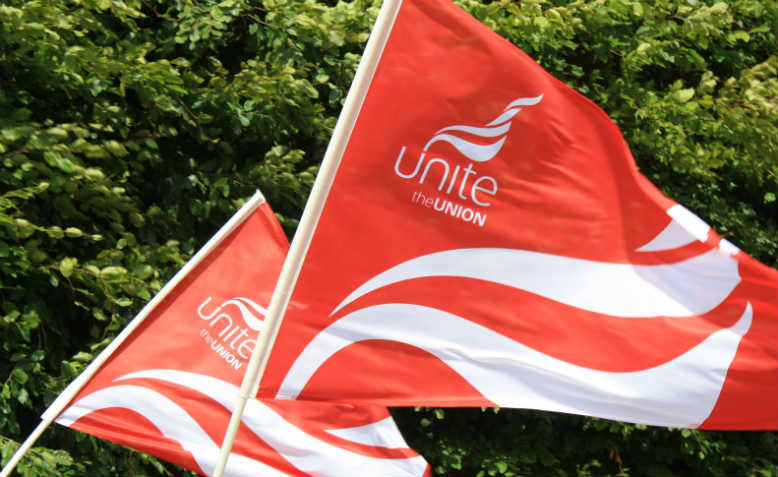 Unite flag. Photo: Flickr/Andrew Skudder
Unite flag. Photo: Flickr/Andrew Skudder
The ballot victory comes as proposals by senior management at St Mungo’s threaten to deteriorate working conditions and services provided
Last week hundreds of workers, at the homeless charity St. Mungo’s won their ballot for industrial action. The result was emphatic, with 83.7% voting in favour of strike action in what was the second vote in less than six months.
Despite a resounding victory in September, they were a single vote away from reaching the 50% threshold set by the anti-union laws implemented by the Tories. This latest result was over 10% higher than in September and this increase reflects the growing determination to take a stand against the organisation’s senior management.
The dispute is primarily motivated by what is perceived to be a ‘race to the bottom’ by St. Mungo’s workers. Proposals to scrap a hard-fought junior staffing cap, which Unite staff representatives argue is a prelude to pay cuts through the back door, a punitive sickness policy and an excessively harsh use of grievance and disciplinary procedures, which has fostered a culture of fear amongst workers and has pushed those on the frontline to their limits. These issues, part of a series of concerns, have further contributed to a breakdown of trust with workers not seeing their shared values of care and compassion reflected in the behaviour of senior management.
Staff at St. Mungo’s work with some of society’s most vulnerable. Operating in a highly stressful environment, the work entails regular exposure to crisis and trauma. Such emotional labour takes its toll, and frontline workers will do what it takes to preserve their working conditions. This means fighting not just for their working rights but also for the living conditions of service users – the two are inseparable; if working conditions are slashed, so too will the quality of services.
Vulnerable service users remain at the forefront of the minds of those who have voted to strike with Unite members believing that ultimately it’s the safety of the services St. Mungo’s are able to provide which will be in jeopardy if senior management pushes ahead with its plans. The argument that strike action poses risks to vulnerable service users has been used to pressure Unite members but it is the St. Mungo’s hierarchy who is responsible for putting the safety of services at risk – both in the short term, in the event of a strike and in the longer term, as the quality of services provided deteriorate as a consequence of the prioritisation of economic value over social value.
Industrial action is very much seen as a last resort by St. Mungo’s Unite members, and it is very much hoped that senior management comes to its senses, drops its plans to change the junior staffing cap and returns to the negotiating table. In the event that they don’t, strike action will be a necessary step in the fight to protect working standards and the quality of services both at St Mungo’s and in the wider industry, which will need the support of the whole labour movement.

